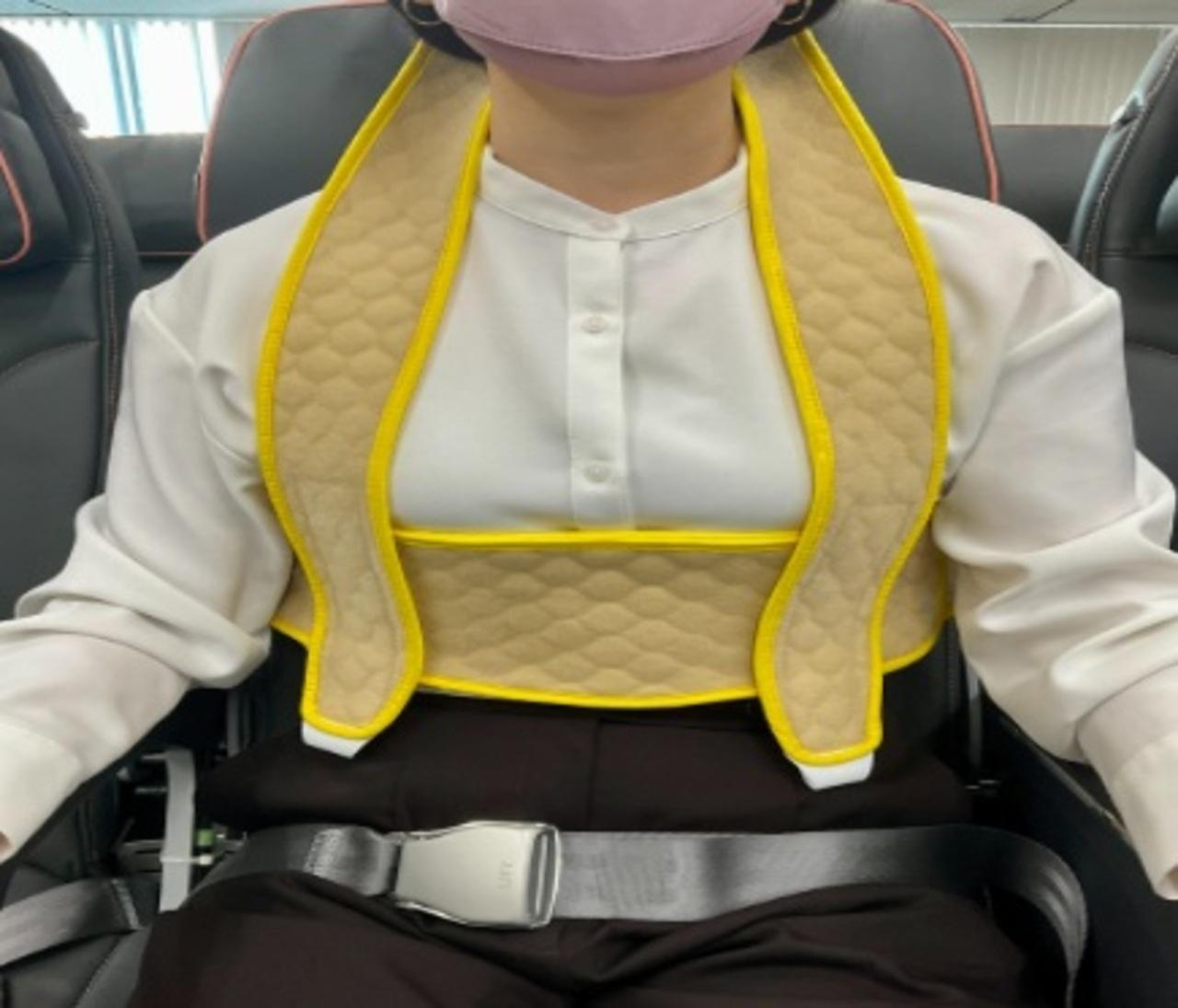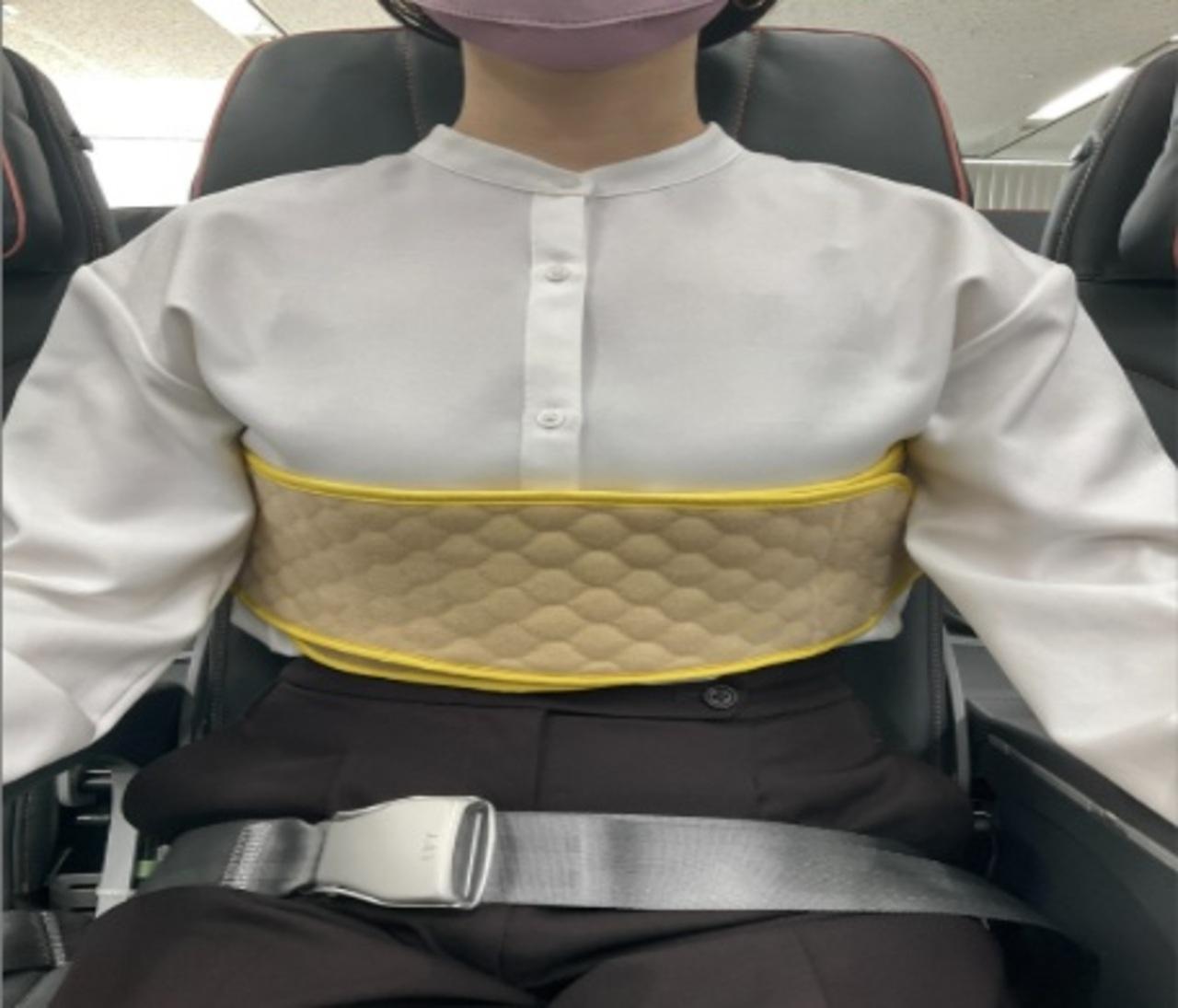Assistance services

Information for customers who need assistance.
Support will be provided for customers who need assistance at the airport and on board as needed.
Please contact the Contact Center at least 5days prior to departure to request support. Also, please come to the check-in counter at least 3 hours prior to the scheduled time of departure. If you have not contacted us in advance, check-in procedures at the airport counter may take additional time. Please review the notes provided on each relevant page.
- Wheelchair users are required to confirm the following in advance at the Contact Center. Please fill out this check sheet (PDF)and send it to the Contact Center by Files Submission Form 5days prior to departure. * If the required check sheet has not been submitted in advance, we may need to ask you additional questions at the airport counter, and preparing a wheelchair or other assistance may take extra time.
About your walking condition
- Able to walk and go up and down stairs unassisted, but not able to walk long distances (use a wheelchair only in the airport).
- Able to walk unassisted but not up and down stairs (use a wheelchair to the plane entrance).
- Unable to walk unassisted (wheelchair to near the seat in the cabin and need assistance in transferring)
Wheelchairs to be checked in
- Type of wheelchair (electric or manual)
- For electric wheelchairs, whether the battery can be removed or not
- For electric wheelchairs, battery type
- Wheelchair foldable or not
- Wheelchair size (height, width, depth, weight)
Advance seat reservation
- To request a seat, please use the Advance Seat Reservation Service at least 24 hours prior to departure. (Paid service)
- For safety reasons, emergency exit row seats are not available for customers using wheelchairs.
- Attendants and cabin attendants are unable to provide personal assistance (such as assistance with meals and use of restrooms), so customers who are unable to take care of personal needs on their own will need to reserve a seat next to an accompanying person in advance.
- Wheelchair accessible lavatory: Behind 25ABC
About Electric Wheelchair Batteries
- The counter attendant at the departure airport will check the specifications of the battery. If you are unsure about the battery for your wheelchair, please check with the manufacturer, etc., beforehand.
- Limits on the number of batteries and their power consumption (Wh- watt-hours) vary depending on battery type.
- The following applies only when transported by the person using the device as a walking aid. Note that spare batteries may not be transported by themselves, as they must be transported together with the electric wheelchair itself.
(For lithium-ion batteries)
Up to two batteries with a watt-hour rating (Wh) of 160 Wh or less may be carried on board per person. Not allowed in checked luggage. One battery with a watt-hour rating (Wh) of greater than 160 Wh but 300 Wh or under may be carried on board per person. Not allowed in checked luggage.
Batteries with a watt-hour rating (Wh) exceeding 300 Wh are not permitted on board or in checked baggage.
Batteries installed in the wheelchair itself are not included as spare batteries. When removing the battery, pack it in appropriate materials before bringing on board to protect it from external impact.
(For dry batteries such as NiMH, NiCd, etc.)
Two batteries are allowed per person in checked luggage. Not allowed on board.
※There is no limitation on the number of batteries according to the standards of the Ministry of Land, Infrastructure, Transport and Tourism (MLIT). However, Air Japan has set limits in accordance with the IATA (International Air Transport Association) Dangerous Goods Regulations.
(For wet non-spillable batteries)
One battery is allowed per person in checked luggage. Not allowed on board.
(For wet spillable batteries)
Spares are not allowed in checked luggage or on board.
- Please notify the Contact Center at least 5days prior to departure if you need assistance. (Guide dogs are allowed to accompany customers free of charge. Please also check [customers with assistance dogs for the physically challenged] if you wish to bring your dog with you.
- To request a seat, please use the Advance Seat Reservation Service at least 24 hours prior to departure. (Paid service)
- For safety reasons, emergency exit row seats are not available for customers using wheelchairs.
- Attendants and cabin attendants are unable to provide personal assistance (such as assistance with meals and use of restrooms), so customers who are unable to take care of personal needs on their own will need to reserve a seat next to an accompanying person in advance.
- Please notify the Contact Center at least 5days prior to departure if you need assistance. (Hearing dogs are allowed to accompany customers free of charge. Please also check [customers with assistance dogs for the physically challenged] if you wish to bring your dog with you.
- To request a seat, please use the Advance Seat Reservation Service at least 24 hours prior to departure. (Paid service)
- For safety reasons, emergency exit row seats are not available for customers using wheelchairs.
- Attendants and cabin attendants are unable to provide personal assistance (such as assistance with meals and use of restrooms), so customers who are unable to take care of personal needs on their own will need to reserve a seat next to an accompanying person in advance.
- Written communication is available at the check-in counter and on board the aircraft. Please inform airport staff or flight attendants if you need this service.
- Please inform the Contact Center at least 5days prior to departure if you are bringing an assistance dog for the physically challenged (guide dog, service dog, or hearing dog) with you.
- When accompanied by an assistance dog for the physically challenged (guide dog, service dog, or hearing dog), customers will be required to present a document, harness, tag, or verbal confirmation proving that the dog is a guide dog, hearing dog, or service dog.
- Medium and large dogs are required to lie down on the floor in the cabin. To ensure space for service dogs, we recommend that you designate (1A~C、1D~G、1H~K、10D~G、30D~G) when selecting advance seat reservations. (Advance seat reservation is a paid service.) For details, please refer to Paid advance seat designation service.
- If you have a large dog that you believe will take space into aisle or adjacent seats, you may be required to contact call center for your assistance dog.
- Customers with guide dogs, hearing dogs, or service dogs certified overseas can receive a “limited-time certificate” for the duration of their stay in Japan. For details, please refer to the Ministry of Health, Labor and Welfare website “Information on Assistance Dog Users Traveling from Overseas.” (PDF) Advance import/export quarantine procedures are required. For more information, please check the Ministry of Agriculture, Forestry and Fisheries website "Animal Quarantine Station".
- Passengers who are 29 days or more from the expected date do not need to contact us in advance. We may ask you about your expected childbirth date and health condition at the airport and onboard the aircraft.
- Passengers within 28 days including the expected date of childbirth are required to submit a MEDICAL INFORMATION FORM issued within 7 days including the date of flight.
- For passengers within 14 days including the expected date of childbirth, a MEDICAL INFORMATION FORM issued within 7 days including the date of flight must be submitted and a doctor must accompany the passenger.
- Please download the MEDICAL INFORMATION FORM (PDF)and send it to the Contact Center by Flies Submission Form 5days prior to departure.
- For safety reasons, emergency exit row seats are not available for pregnant customers.
- For passengers traveling to Singapore If you are traveling to Singapore for childbirth, please confirm the entry requirements with the Immigration & Checkpoints Authority (ICA) of Singapore before departure.
Customers with intellectual or developmental disabilities are required to confirm the following in advance at the Contact Center.
Availability of an accompanying person
- Attendants and cabin attendants are unable to provide personal assistance (such as assistance with meals and use of restrooms), so customers who are unable to take care of personal needs on their own will need to reserve a seat next to an accompanying person in advance.
- To request a seat, please use the Advance Seat Reservation Service at least 24 hours prior to departure. (Paid service)
- For safety reasons, emergency exit row seats are not available for customers using wheelchairs.
Passengers who have difficulty maintaining a seated posture due to illness or injury are requested to contact our Contact Center no later than five days prior to the scheduled departure date.
- Documents to be submitted None required.
- Borrowing support belts Support belts to keep the upper body in the seat are available to borrow free of charge. They are provided as a set consisting of a vest type and a belt type. Reservations required. Please contact the Contact Center for assistance.
- How to use
Support belts will be handed out on the plane.
- Upper-body support belt type – Put it on like a vest and tighten the buckle in front. – If it is difficult to get your arms through the openings, undo the black buttons on the back to put each arm through separately. – Open the tray on the seat back, cross the chest belt in the rear, and fasten it in front. Then, close the tray over the belt. – As needed, use the shoulder belt for improved upper body stability.
- Belt type – Use as appropriate for your posture.

Upper-body support belt 1 set

Belt type S-M 1 set Belt type M-L 1 set
- Seat Selection For safety reasons, do not use in the emergency exit row seats.
- Companions
The following passengers are requested to sit next to companions.
Use the premium advance seat assignment service at least 24 hours before departure to choose your seats.
- Passengers unable fully to understand cabin crew's safety instructions
- Passengers unable to care for themselves (eating, use of restroom [including changing clothing], etc.)
The companion is requested to provide care in moving through the airport, during boarding/deboarding, and during the flight, and to assist in emergencies. The cabin crew is unable to provide personal care. Passengers are requested to prepare the items needed for their own care.
Medical devices for which the Contact Center must be contacted at least five days before departure
You do not need to contact the Contact Center if the device will not be used on the plane. See the detailed pages below concerning other medical devices.
Medical Equipment Documents to be submitted to the Contact Center Medical Oxygen Clyindar the Medical Oxygen Cylinder Checklist (PDF) Doctor's medical certificate Picture of the device CPAP Medical electronic device entry sheet POC Doctor's medical certificate Medical electronic device entry sheet Medical Oxygen Clyindar
Please contact the Contact Center at least 5days prior to departure to request support.
- Documents to be submitted – the Medical Oxygen Cylinder Checklist (PDF) – Doctor's medical certificate (issued within the past 14 days, including the date of boarding) – Picture of the device
- Seat selection For safety reasons, you may not sit in emergency exit row seats.
- Carry-on/Import Restrictions and Specification Required
- Please download the the Medical Oxygen Cylinder Checklist (PDF)and send it to the Contact Center by Files Submission Form .
CPAP (continuous positive airway pressure) equipment
Notify the Contact Center at least five days before the planned departure date.
- Documents to be submitted Medical electronic device entry sheet
- Seat selection For safety reasons, you may not sit in emergency exit row seats.
- Carrying batteries Some batteries may not be used or carried on board depending on type and capacity. Notify us in advance.
- Other important notes
- Some device types may not be used or stored on board. Notify the Contact Center of device specifications and battery types at least five days before departure, so we can check whether they are permitted for air travel.
- Note that AC power supplies may not be used on the plane.
- You may be asked to suspend use as instructed by the pilot when it interferes with aircraft instruments.
POC (Portable Oxygen Concentrator)
Notify the Contact Center at least five days before the planned departure date.
- Documents to be submitted – Doctor's medical certificate (issued within the past 14 days, including the date of boarding) – Medical electronic device entry sheet
- Seat selection For safety reasons, you may not sit in emergency exit row seats.
- Carrying batteries Some batteries may not be used or carried on board depending on type and capacity. Notify us in advance.
- Please bring enough POC batteries to cover at least 150% of the total flight time. Calculating the required number of batteries: In consultation with your attending physician, determine the appropriate POC model and the number of batteries required based on the oxygen flow rate you need during the flight (i.e., the oxygen flow rate indicated on the AirJapan Medical Information Sheet).
- Follow the rules below to use the device safely on the plane.
- Do not smoke or use flame within 10 feet (three meters)
- Make sure there are no oils, vegetable oils, petroleum products, etc. in the vicinity, and that the POC itself is working properly
- Place the device under the seat in front of you and sit in a seat on the plane where it will not impede the evacuation routes for other passengers.
- You and your companion must be knowledgeable of device operation, problems, etc. and be able to respond appropriately to any problems.
- Insulate extra batteries to prevent short circuiting.
- Other important notes
- Some device types may not be used or stored on board. See the list of examples of POC (portable oxygen concentrator) devices that may be used on board. Notify the Contact Center of device specifications and battery types at least five days before departure, so we can check whether they are permitted for air travel.
- Devices other than those on the list above may be used on board if they are labeled showing that they satisfy US Federal Aviation Authority (FAA) standards. However, battery specifications must be checked separately. * Example of wording on the label: The manufacturer of this portable oxygen concentrator has determined this device conforms to all applicable FAA requirements for portable oxygen concentrator carriage and use on board aircraft.
- Note that AC power supplies may not be used on the plane.
- You may be asked to suspend use as instructed by the pilot when it interferes with aircraft instruments.
Ostomy appliances
If you require assistance, please contact the Contact Center no later than five days prior to your scheduled departure date.
- Documents to be submitted None required.
- Seat selection Sitting in emergency exit row seats is permitted.
- Carry-on restrictions / Size and quantity checks None.
- Other important notes – To help ensure a smooth security screening process, we recommend carrying documentation or packaging that clearly identifies the contents. – Scissors and other bladed items* are not permitted in carry-on baggage, even if they are used for medical purposes. Please prepare any appliances that require cutting before arriving at the airport. * Scissors with blades not exceeding 6 cm and with rounded tips may be permitted on board. However, scissors may still be prohibited if deemed sharp or potentially dangerous by security officers.
Self-injection (insulin etc.)
If you require assistance, please contact the Contact Center no later than five days prior to your scheduled departure date.
- Documents to be submitted None required.
- Seat selection Sitting in emergency exit row seats is permitted.
- Carry-on restrictions / Size and quantity checks None.
- Other important notes – You may use insulin pumps, injectors (needles) for personal use, EpiPens, and medicines on board. – To facilitate airport security checks, we recommend carrying a clear description of the contents (such as a prescription, a medical certificate from your doctor, or a diabetic ID card). – If using an overseas airport, we recommend preparing a certificate in English. – Standards at overseas airports vary by country. Inquire with the embassy or other related agency of the destination country before departure. – Be sure to carry used injectors and needles with you off the plane and dispose of them as instructed by the medical institution.
- Stretchers are not available.
- Peritoneal dialysis (CAPD) is not allowed in cabin.
- The following customers may not be permitted to board:
- Customers with health concerns
- Customers with major injuries
- Customers who have had major surgery
- Category 1, Category 2, Category 3 infectious diseases and those who are within the suspension period stipulated by the School Health and Safety Act in Japan, and those who have been suspected.